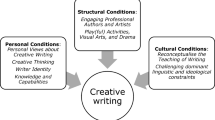Abstract
In this paper, I characterize Susan Haack’s so called “passes-for” fallacy, analyze both what makes this inference compelling and why it is illegitimate, and finally explain why reflecting on the passes-for fallacy—and others like it—should become part of critical thinking pedagogy for humanities students. The analysis proceeds by examining a case of the passes-for fallacy identified by Haack in the work of Ruth Bleier. A charitable reconstruction of Bleier’s reasoning shows that it is enlightening to regard the passes-for fallacy as an abuse of the application conditions of the concept of bias, rather than as an egregious case of Hasty Generalization.
Similar content being viewed by others
Notes
In Defending Science within Reason, Haack reports (p. 30, footnote 26) that the term was coined in “Knowledge and Propaganda: Reflections of an Old Feminist,” originally published in 1993; however, I have been unable to find the term in my reprint of that essay in Manifesto of a Passionate Moderate.
See Blackburn (2005, Chaps. 2, 3) for a very general characterization of the dialectic between “relativists” and “absolutists.”
This term, too, is from Blackburn. See Blackburn (2005, p. xvi) where he describes the relativist as maintaining that: “The dark forces of language, culture, power, gender, class, economic status, ideology and desire are always assailing us, but their works remain dangerously hidden in our blindspots, waiting only to be revealed by future generations who will have other blindspots of their own.”
Walton (1999) provides a useful general account of the fallacy of Hasty Generalization, as well as references to a variety of formulations of this fallacy.
This may also mean that there is no formal or structural criterion by which a bit of reasoning can be identified as committing the passes-for fallacy. Instead this ‘fallacy’ would be a common mistake made in certain epistemological contexts.
This is impossible because in order find a discrepancy between some belief and the evidence for it, our beliefs about the evidence must have a positive epistemological standing, but then there could not be a discrepancy between the evidence and our evidence for it.
There is a long-standing philosophical debate about the coherence of relativist positions. See Blackburn (2005) for an introduction to this debate. Chapters 2 and 3 of Blackburn’s book are a sustained attempt to show the defensibility of the relativist position in the face of charges that the position is somehow self-undermining. Whether the relativist can hold his or her own in the end is up for dispute, but Blackburn makes it plausible that there is no straightforward refutation of his or her position.
References
Blackburn, S. 2005. Truth: A guide. Oxford: Oxford University Press.
Bleier, R. 1988. Science and the construction of meaning in the neurosciences. In Feminism within the science, health care professions: Overcoming resistance, ed. S. Rosser. Oxford: Pergamon Press.
Brugge, J., S. Friedman, J. Leavitt, and J. Rose. 1988. On the death of Professor Ruth Bleier. NWSA Journal 1: 3–6.
Haack, S. 1995/96. Science is neither sacred nor a confidence trick. Foundations of Science 3: 323–335.
Haack, S. 1998. Manifesto of a passionate moderate. Chicago: University of Chicago Press.
Haack, S. 1999a. Staying for an answer. The Times Literary Supplement, July 9, 1999.
Haack, S. 1999b. A fallibilist among the cynics. Skeptical Inquirer 23 (1): 47–50.
Haack, S. 2003. Defending science—within reason. Amherst, NY: Prometheus Books.
Haack, S. 2005. The unity of truth and the plurality of truths. Principia 9 (1–2): 87–110.
Kant, I. 1998. Critique of Pure Reason, ed. P. Guyer and A. Wood. Cambridge: Cambridge University Press.
Walton, D. 1999. Rethinking the fallacy of hasty generalization. Argumentation 13: 53–71.
Williams, B. 2002. Truth and truthfulness. Princeton: Princeton University Press.
Author information
Authors and Affiliations
Corresponding author
Rights and permissions
About this article
Cite this article
Goodwin, W. The ‘Passes-For’ Fallacy and the Future of Critical Thinking. Argumentation 24, 363–374 (2010). https://doi.org/10.1007/s10503-009-9170-y
Accepted:
Published:
Issue Date:
DOI: https://doi.org/10.1007/s10503-009-9170-y



